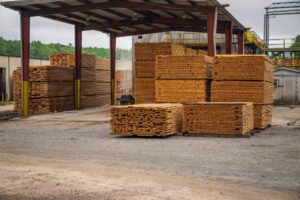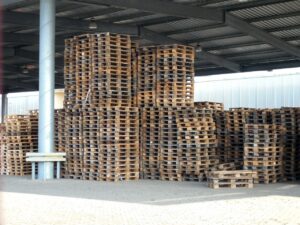Introduction
The bamboo industry has been experiencing significant growth in recent years, driven by rising demand for sustainable materials and eco-friendly alternatives to traditional resources. With its fast growth rate, versatility, and environmental benefits, bamboo has emerged as a key player in various industries, from construction to textiles. This blog explores the global market trends, challenges, and opportunities in the bamboo sector, offering an in-depth analysis of its future potential.
Global Market Trends
1. Rising Demand for Sustainable Products
Consumers are becoming more environmentally conscious, driving demand for sustainable and renewable materials. Bamboo, known for its rapid growth and minimal ecological footprint, has gained popularity in industries like furniture, home decor, and packaging. Governments and organizations are implementing strict environmental regulations, further boosting the market for bamboo-based products.
2. Increased Use in Construction and Architecture
Bamboo’s strength and flexibility make it an excellent alternative to traditional building materials such as steel and concrete. Countries in Asia, Latin America, and even parts of Europe are increasingly adopting bamboo in construction due to its cost-effectiveness and sustainability. Bamboo is being used in bridges, scaffolding, flooring, and even prefabricated housing solutions, demonstrating its structural viability. Research into engineered bamboo is also expanding its use in earthquake-resistant and disaster-resilient structures.
3. Growth in the Bamboo Textile Industry
Bamboo fiber has become a popular choice for textile manufacturers due to its softness, breathability, and antimicrobial properties. The bamboo apparel and fabric market is expected to grow steadily as consumers seek eco-friendly clothing options. Bamboo-based fabrics, including bamboo viscose and bamboo lyocell, are considered biodegradable and require less water and pesticides compared to cotton, making them a sustainable choice for the fashion industry. Major brands are now incorporating bamboo fabrics into their sustainable fashion lines.
4. Booming Bamboo-Based Packaging Market
With the crackdown on plastic waste, bamboo-based packaging has gained traction, particularly in food and beverage industries. Biodegradable bamboo packaging is now being widely used for cutlery, straws, containers, and even disposable plates. Major companies are switching to bamboo-based alternatives as they aim to reduce plastic consumption and meet sustainability goals. The demand for eco-friendly packaging is also being fueled by regulations and bans on single-use plastics in several countries.
5. Expansion in the Health and Wellness Sector
Bamboo extracts and bamboo-based skincare products are gaining recognition for their natural health benefits. Bamboo-infused cosmetics, medicinal supplements, and personal care items are increasingly in demand. Bamboo charcoal is widely used in detoxifying masks, toothpaste, and air purifiers, while bamboo shoots are a popular health food rich in antioxidants and nutrients.
Opportunities in the Bamboo Sector
1. Investments in Bamboo Farming
The increasing demand for bamboo products opens opportunities for entrepreneurs and farmers to invest in bamboo cultivation. Governments and organizations worldwide are offering incentives and support for sustainable bamboo farming. Bamboo plantations can serve as carbon sinks, helping in climate change mitigation while providing financial benefits to growers. There is also scope for community-driven bamboo farming initiatives, particularly in rural areas where it can provide sustainable livelihoods.
2. Innovation in Bamboo Product Development
As technology advances, new applications for bamboo are emerging, including bamboo composites, biofuels, and even bamboo-based electronic components. Innovations such as laminated bamboo panels, bamboo particle boards, and bamboo bioplastics are reshaping industries. Research is also underway on the potential of bamboo for 3D printing materials and biodegradable alternatives in electronics and automotive sectors.
3. Government Support and Sustainability Initiatives
Many countries are encouraging bamboo-based industries through policies, tax benefits, and subsidies. Governments in countries like India, China, and Thailand have launched programs to promote bamboo cultivation and processing industries. Businesses can leverage these initiatives to scale operations and enter new markets, benefiting from lower costs and reduced regulatory barriers.
4. Export Potential in Emerging Markets
Countries with rich bamboo resources, such as India, China, and Indonesia, have strong export potential. The global market demand for high-quality bamboo products offers lucrative opportunities for exporters. With growing environmental concerns, Western markets are increasingly looking towards sustainable imports, creating a high demand for bamboo products, especially in Europe and North America.
5. Growth in Bamboo-Based Bioenergy
Bamboo is being explored as a sustainable bioenergy source, with applications in biomass energy production. Bamboo pellets and charcoal are being utilized as an alternative to fossil fuels, particularly in energy-deficient regions. Bamboo’s high energy yield and rapid growth cycle make it a viable bioenergy crop, contributing to renewable energy solutions worldwide.
Challenges in the Bamboo Industry
While the bamboo industry presents exciting opportunities, several challenges must be addressed:
- Lack of Standardized Processing Techniques: The absence of uniform processing and quality standards affects product consistency and marketability.
- Limited Consumer Awareness: Many consumers are still unaware of bamboo’s full potential and benefits, requiring better marketing and education efforts.
- Supply Chain Inefficiencies: The bamboo supply chain faces issues such as inadequate transportation, inefficient harvesting methods, and storage limitations.
- Regulatory Hurdles: Some countries impose restrictions on bamboo harvesting and trade, impacting market growth.
- Competition with Other Sustainable Alternatives: Bamboo competes with other renewable materials such as hemp, jute, and recycled plastics, requiring continuous innovation to stay ahead.






